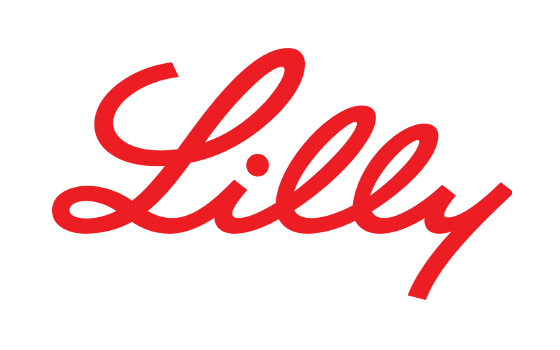 The U.S. Food and Drug Administration (FDA) has issued an Emergency Use Authorization (EUA) for bebtelovimab, an antibody that demonstrates neutralization against the Omicron variant, Eli Lilly and Company (NYSE: LLY) announced today.
The U.S. Food and Drug Administration (FDA) has issued an Emergency Use Authorization (EUA) for bebtelovimab, an antibody that demonstrates neutralization against the Omicron variant, Eli Lilly and Company (NYSE: LLY) announced today.
Bebtelovimab can now be used for the treatment of mild-to-moderate COVID-19 in adults and pediatric patients (12 years of age and older weighing at least 40 kg) with positive results of direct SARS-CoV-2 viral testing, and who are at high risk for progression to severe COVID-19, including hospitalization or death, and for whom alternative COVID-19 treatment options approved or authorized by FDA are not accessible or clinically appropriate. The authorized dose of bebtelovimab is 175 mg given as an intravenous injection over at least 30 seconds.
"As a global pharmaceutical company, Lilly has worked hard to fight this pandemic. Early in 2021, prior to the identification of the Omicron variant, Lilly scientists were already working to develop bebtelovimab as a broadly neutralizing antibody that could be used to fight a highly mutated variant, should one emerge," said Daniel Skovronsky, M.D., Ph.D., Lilly's chief scientific and medical officer, and president of Lilly Research Laboratories. "With the emergence of variants such as Omicron, treatment options remain limited. Lilly is pleased to provide another treatment option to help address the ongoing needs of patients and health care providers who continue to battle this pandemic."
The data supporting this EUA are primarily based on analyses from the Phase 2 BLAZE-4 trial (NCT04634409), treatment arms 9-14. This trial was a Phase 2, randomized, clinical trial evaluating treatment of non-hospitalized patients with mild-to-moderate COVID-19 who were treated with the authorized dose of bebtelovimab (175 mg) alone or together with 700 mg bamlanivimab and 1,400 mg of etesevimab. Pseudovirus and authentic virus testing demonstrate that bebtelovimab retains full neutralizing activity against Omicron – currently the predominant variant in the U.S. In addition, pseudovirus testing with bebtelovimab demonstrates that it retains neutralization against all other known variants of interest and concern, including BA.2.
As previously announced, Lilly has signed an agreement with the U.S. government to supply up to 600,000 doses of investigational drug bebtelovimab for at least $720 million.
About bebtelovimab
Bebtelovimab (LY-CoV1404; LY3853113) is a neutralizing IgG1 monoclonal antibody (mAb) directed against the spike protein of SARS-CoV-2 that maintains binding and neutralizing activity across currently known and reported variants of concern, including Omicron and BA.2. Bebtelovimab is being studied for the treatment of mild-to-moderate COVID-19 both as a monotherapy and together with other mAbs. Lilly has licensed and developed bebtelovimab after it was discovered by AbCellera and the scientists at the National Institute of Allergy and Infectious Diseases (NIAID) Vaccine Research Center.
About BLAZE-4
BLAZE-4 is a Phase 2, randomized clinical trial evaluating treatment of subjects with mild-to-moderate COVID-19 (subjects with COVID-19 symptoms who are not hospitalized).The data supporting this EUA for treatment of mild-to-moderate COVID-19 are primarily based on analyses of data from the Phase 2 BLAZE-4 trial (NCT04634409), treatment arms 9-14. This trial evaluated the clinical safety and efficacy from subjects receiving 175 mg bebtelovimab, alone and together with 700 mg bamlanivimab and 1,400 mg of etesevimab. The authorized dosage of bebtelovimab is 175 mg given as an intravenous injection over at least 30 seconds.
Clinical data confirm the neutralizing ability of bebtelovimab. The trial enrolled subjects who were not hospitalized and had 1 or more COVID-19 symptoms that were at least mild in severity.
About Lilly's COVID-19 Efforts
Lilly has utilized the full force of its expertise to develop the first monoclonal antibody authorized for Emergency Use (EUA) by the U.S. Food and Drug Administration (FDA) – bamlanivimab, followed by the authorization of bamlanivimab with etesevimab and, most recently, bebtelovimab. The authorized dose of bebtelovimab is 175 mg given as an intravenous injection over at least 30 seconds.While bamlanivimab together with etesevimab are not authorized for use in the U.S., at this time, the FDA will monitor conditions to determine whether use in a geographic region is medically appropriate, referring to available information, including information on variant susceptibility, and CDC regional variant frequency data available at: https://covid.cdc.gov/covid-data-tracker/#variant-proportions.
To date, over 700,000 patients have been treated with Lilly's monoclonal antibodies in the U.S., potentially preventing more than 35,000 hospitalizations and at least 14,000 deaths during the worst of the pandemic. Click here for resources related to Lilly's COVID-19 efforts.
About Eli Lilly and Company
Lilly is a global health care leader that unites caring with discovery to create medicines that make life better for people around the world. We were founded more than a century ago by a man committed to creating high-quality medicines that meet real needs, and today we remain true to that mission in all our work. Across the globe, Lilly employees work to discover and bring life-changing medicines to those who need them, improve the understanding and management of disease, and give back to communities through philanthropy and volunteerism.